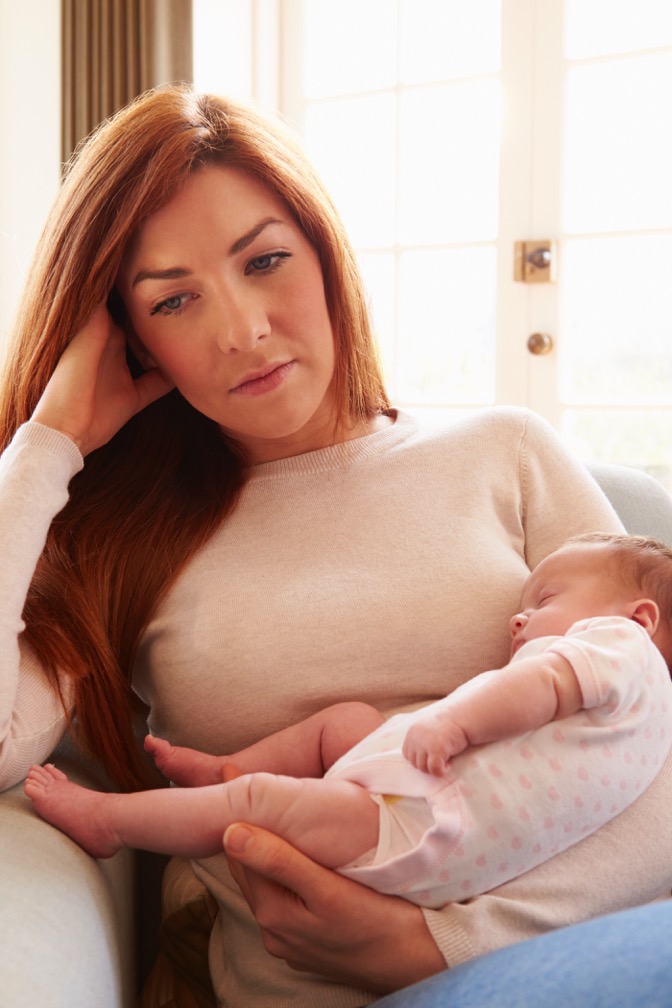By Dr Bronwyn Leigh
The perinatal period is before and after birth – in mental health terms for parents this means during pregnancy and the first year postpartum. While depression can occur at anytime during life, the perinatal period is the time of highest risk for a woman to develop, or have a reoccurrence of, a mental health condition.
Chances are you’ve heard of postnatal depression (PND), sometimes called postpartum depression (PPD). PND is a depression that occurs in the first year after the birth of a baby. But what about antenatal depression? Antenatal depression, or depression during pregnancy is far less recognised, by health professionals and by expectant parents. Antenatal depression might start in pregnancy or it may have started before conception and remained into pregnancy. We’ve now got reliable estimates that antenatal depression is almost as prevalent as postnatal depression.
Perinatal depression does not only affect women – men can also be affected.
The stats are staggering…
1 in 10 pregnant women and 1 in 20 expecting men will be affected by antenatal depression, while 1 in 7 Australian women and 1 in 10 Australian men suffer postnatal depression. This equates to almost 80,000 Australian women suffering depression during pregnancy or following the birth of their child (perinatal period) each year.
Perinatal depression is different from the baby blues, where new mothers are tearful and feel overwhelmed. The baby blues affects up to 80% of women between days three and ten after birth. This is due to hormonal changes and symptoms usually resolve within a few days.
Symptoms of perinatal depression include:
- Low mood, feeling flat
- Feeling sad, irritable or resentful
- Tearfulness
- Low motivation
- Low self-esteem and lack of confidence
- Feelings of inadequacy, worthlessness and guilt
- Feeling unable to cope
- Fear of being alone with your baby or excessive worry about your baby
- Loss of interest in things you normally enjoy
- Difficulty getting to sleep despite being tired or excessive sleeping
- Changes in appetite
- Low sex drive
- Difficulty concentrating or remembering things
- Thoughts about harming yourself or your baby, wanting to end your life, or wanting to escape everything
If you have experienced some of these symptoms and they have persisted for two weeks or more, it’s time to get help. At the Centre for Perinatal Psychology, we understand how debilitating depression can be when you are pregnant or have a little one to care for. We work with you to improve your mental health and your relationship with your baby. There are safe and effective treatments available, and that’s what we specialise in.
About the Author
Dr Bronwyn Leigh is a clinical psychologist, perinatal and infant clinician and early parenting consultant. She is Director of the Centre for Perinatal Psychology. Bronwyn specialises in the psychological aspects of becoming a parent, the emotional development of infants, and parent-infant relationships.
Contact us Today
Find a psychologist near you that can help you with perinatal depression and distress, whether you are a Mum or a Dad. You can search by Location and Book Online.
Call us on 1300 852 660 or contact us to make an appointment or enquiry.








